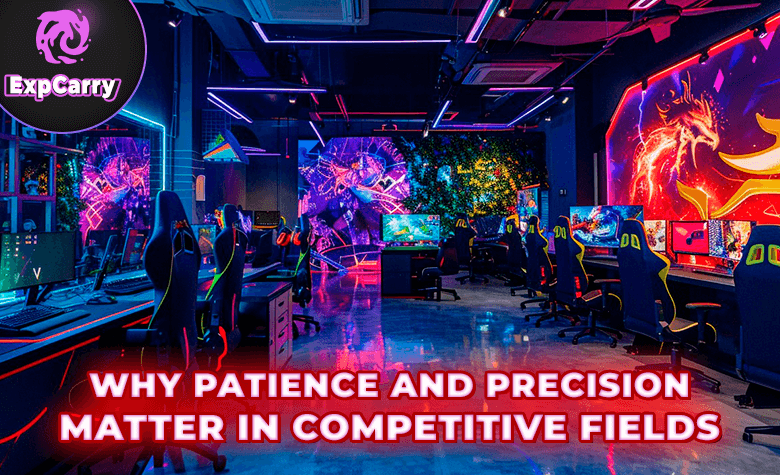Why Patience and Precision Matter in Competitive Fields

Competitive gaming is arguably bigger than it’s ever been with the presence of esports and its status as an enormously lucrative industry. Many of these games feature frenetic paces – so much so that it can be difficult to keep up with what’s happening as a viewer if the game is new to you. This assessment can lead to the idea that there’s no careful skill or patient planning involved with such games, but you’d likely be wrong.
In fact, these skills have a place in all types of competitive games and understanding exactly how can help you gain a distinct advantage.
Speed of Honed Skill
What might look like a mess of random button prompts through your perspective could actually be the refined process of many years of practice. In that sense, it becomes increasingly clear why patient is a relevant factor – it takes time to get to the same point as the best of the best. Getting better at a game isn’t something that happens overnight – even for people who might find games to be more intuitive than others.
To get to a point where you’re continuously getting better at a game, it might not just be enough to play it over and over again. You have to instead understand the right way to play it. Certain strategies and techniques will inevitably become utilized as the culture progresses, and jumping on board with those particular trends might mean you have to be ready to embrace a more in-depth approach.
Your Input on Luck
This is even something worth considering when it comes to games that you might often consider more luck-based. In a direct competitive environment, you might not consider being outplayed by your opponent purely down to luck – you have to consider their own skill and use of strategy against your own. However, there’s arguably always an element of it, and that might be especially true when you come to genres of gaming like casino games, like at spincasino.com. Many of these might be pitting you against ‘the house’, as in the case of slot games. However, when it comes to blackjack, you have the dual elements of competition and luck to consider.
You are trying to defeat these other players, true, and to reach that goal you have to make strategic decisions. However, a large part of the result of these decisions depends on luck. If you decide to take another card in an attempt to get twenty-one when you’re already at seventeen, you’re in need of a card that defies the odds. In this way, you can’t control the luck at play, but you choose your own level of involvement in it – working within the chaos of the deck to try and engineer a victory.
Understanding the Rhythms of the Game
In general, a strong familiarity with gaming as a medium can lead to transferrable skills between them. Someone who has a lot of experience with games might find it easier to pick up a game they haven’t played before and succeed compared to someone who is less so.
Even then, how one first-person shooter plays will be different from another, the skills won’t be exactly transferrable. This is where the idea of precision comes into play. The higher up that you aim to climb on any competitive gaming ladder, the more these small differences can accumulate. In this genre, the speed with which you can aim, fire accurately and move away is transformative. If you’re off or spend too long adjusting your sight, that gives a player with more polish the opportunity to press an advantage.